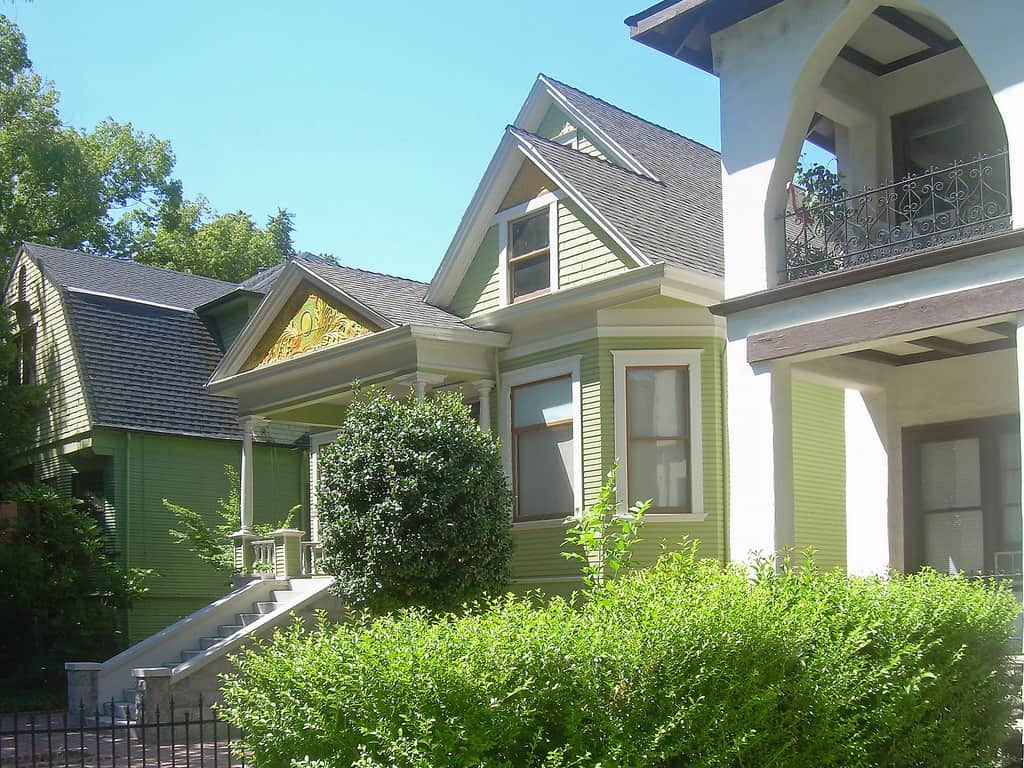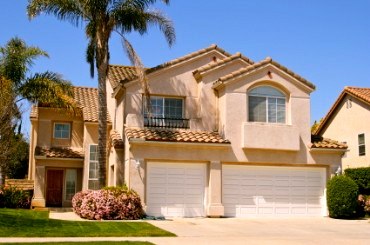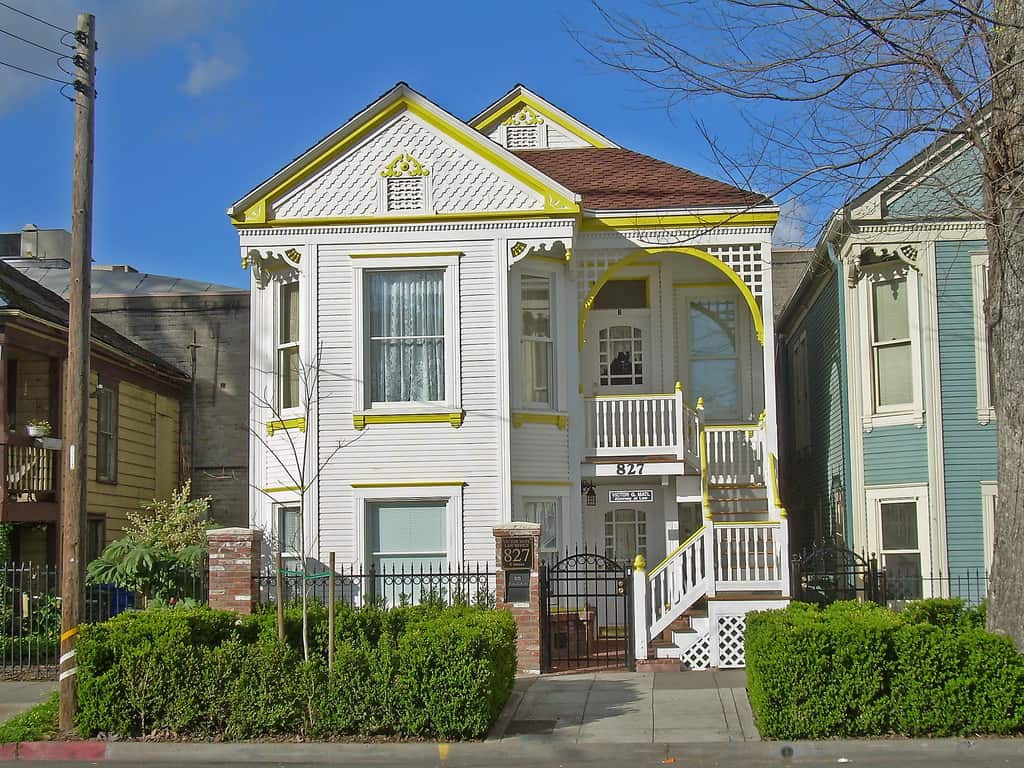How to Save Money and Be Energy Conscious When Buying a House in Sacramento’s Seller’s Market
The Sacramento housing market is really exploding right now, with median house prices rising to the pre-bubble pricing of the last decade—it’s definitely a seller’s market right now. The reasons for this crazy shift in the market seem to be the combined desire to live in the Sac area and slow new housing construction over the last decade, since the population of our coveted city is growing more rapidly than housing developers estimated, creating scarcity. Because of local renewable energy and efficiency incentives, like the California Solar Initiative, a smart decision for any homebuyer about to invest quite a bit of their savings into this hot real estate market would be to look for energy efficient improvements that will offset utility costs, saving money well into the future—and that are in line with SMUD’s goals to conserve energy across the city.
Sacramento is one of the California cities at the forefront of the green movement, offering numerous programs and incentives towards energy improvements in residential housing from the Sacramento Municipal Utility District (SMUD). But along with those incentives come rate hikes for customers that still rely heavily on the grid to supply all their power. That’s why it’s so important for buyers to look for a new home with energy efficient equipment like high-efficiency HVAC systems. After all, one of the biggest users of energy in your home is your HVAC unit, which can account for up to roughly 50% of your monthly energy usage. If your mortgage is at a premium rate already, managing your utility costs is that much more important.
HVAC Questions When House Hunting in Sacramento
If you’re actively looking for a home in Sacramento, there are a few things you should ask the seller specific to HVAC systems for our Mediterranean climate. If you’re buying for the first time, this is a good way to analyze whether or not you’re getting a good price for a home, too. If a home’s price is low compared to others in the same area, you might end up paying more for repairs and utilities sooner rather than later if it isn’t boasting high-efficiency equipment. For example, homes in North Highlands may be more affordable, but most of them were built in the 1950s. If substantial improvements haven’t been made, this could cost you big time down the road in utility costs. That’s why some of the key questions you should ask are:

Historic homes, beautifully restored, in Sacramento | Image courtesy flick’r user David Sawyer
- How much are the monthly utility bills? You should ask for specific details about the utility costs. For example, ask for the monthly bill average in both the winter and the summer, especially in our climate where you can find yourself cycling your unit between heating and cooling several times a year. Make sure to ask specifically what the electricity usually costs, as well as the gas, if that factors into the bill as well.
- What is the size of the HVAC unit? Don’t assume that the house has a unit correctly sized to fit it. Builders often use a basic rule of thumb to size HVAC systems for homes according to square footage, but there are many other factors involved in sizing an HVAC unit. Also, a replaced unit might be over or undersized compared to the original one. Do your homework and find out the size of the unit currently installed, the square footage of the home, and consider other factors like insulation, whether windows are single or double paned, and the orientation the house sits on. Don’t be intimidated by all the information—a trusted HVAC expert can easily perform the calculations for you. You may find that the house has a unit that’s too large or too small, and either scenario means you’ll pay more on your utility bill, or need to install a new unit.
- How old is the HVAC unit? If the unit is more than ten or fifteen years old, the unit might need some maintenance and certainly won’t have as high an efficiency as newer ones. The average lifespan of a residential HVAC unit is somewhere around 20 years, and that’s only if it’s had regular upkeep, like monthly air filter changes. Ask for the service records, and if they’ve had any recent issues with it heating or cooling the home properly. If the sellers can’t answer some simple questions, it’s probably safe to assume maintenance is in order.
- What is the efficiency rating of the unit? Unless your seller works in HVAC, they probably won’t know this number off the top of their heads, but it can easily be found either by looking at the manufacturer’s label on the side of the unit or by doing a quick search online. If you still can’t find one, it’s likely that the actual efficiency is pretty darn low. A rating for a residential unit should be greater than 11.6 EER in cooling mode and 90% AFUE or greater for furnaces or boilers. This is especially important here in Sacramento where the air conditioning side gets a lot of use most months out of the year.
The Best HVAC Units for Your New Sacramento Home

A traditional California home | Image courtesy flick’r user Thomanication
While it may be clear that the HVAC unit is the major factor that affects how energy efficient a home is, it may not be as evident what type of unit is best—it’s a hard question for Sac residents because of our climate. Ordinarily, it’s warm and sunny most of the year, but you wouldn’t know it to walk out the door right now. So what unit’s a favorite in our varying climate? The three best choices for your home are:
- Split system HVAC units: This type of unit runs on electricity and works efficiently to cool and heat your home using a refrigerant in the heating and cooling coils. To cool homes, they absorb the heat out of the air then allow the fan to blow the cooled air into your home, or allow the air passing over them to absorb heat that the fan, in turn, blows out into your home to warm it up. A high-efficiency unit will have an EER rating upwards of 12 and use the more environmentally friendly refrigerant R410a.
- Heat pumps: These work very similarly to split systems except that instead of having separate sets of heating and cooling coils, they have one set along with a switch called a reversing valve that tells the coils when it’s time to heat and when it’s time to cool. Heat pumps are a great energy efficient choice in a temperate climate like Sacramento’s because they can often produce two to three times as much heat energy as the electrical energy that they consume. Efficiency ratings for heat pumps should be similar to or slightly higher than their split system counterparts.
- High-efficiency furnaces: A furnace uses natural gas or propane to create a flame that heats tubes in a heat exchanger. In the past, this wasn’t the most efficient way to heat your home because of the amount of heat that was lost, but newly designed high-efficiency furnaces now come equipped with a second heat exchanger that captures the heat otherwise discarded as waste and uses it to warm your home.
Other Key Energy Efficient Improvements to Look For
Homebuyers in the Sacramento area right now should consider that with housing prices twice the national average, you need to make sure your new home has all the energy efficient features possible—starting with the HVAC unit. That way you can focus on that new mortgage and not worry about your utility costs. But, like courses in a meal, there are many energy saving features that must work together to improve a home’s efficiency, like:

A Sacramento Victorian home, turned modern with bold, yellow trim | Image courtesy flick’r user David Sawyer
- A high-efficiency HVAC unit: This should be the first improvement you focus on. As discussed, HVAC units can drain power and run up your bill more than any other piece of equipment in your home, so it’s the first thing you should look at.
- Properly sealed doors and windows: It won’t do you any good to have a brand new HVAC unit if you’re leaking all your efficiently heated air back outside. Make sure doors, windows, and attic spaces are sealed properly to reduce leakage from your home’s envelope.
- Adequate insulation: This is especially important for the top floor and the attic of a home. Just like your head, you lose most of the heat from the top of your home, so put a good, thick blanket of insulation up there. Most homes don’t have enough, especially in an area like Sacramento that has such a moderate climate. But the truth is, insulation is just as important to keep the cool in during the summer as it is to keep in the warm air during the winter.
- Programmable thermostats: A programmable thermostat isn’t just for the tech-crazy residents of Davis—it can pay for itself in a year simply by adjusting temperatures when you forget to.
- Double insulated windows: A newer home probably already has double paned windows, but a surprising number of older homes in Sac still have single paned ones. No matter what the weather is outside, single pane windows aren’t your friend, and this becomes even more of a concern the more windows a home has. So if you find a place with great natural light, make sure that those windows are well insulated or you’ll have trouble keeping that room heated throughout the winter, and cooled come summer.
One thing’s for sure—Sacramento’s housing market is crazy right now and doesn’t look to be letting up anytime soon. Unlike the housing bubble ten years ago, prices are rising but the bubble’s not expected to burst like it did before because of the stability and high demand to live in this great city of ours. So if you’re looking for a house in the area, it’s still a great investment—and can be even better if you wisely choose a home with smart energy improvements to the cooling and heating system.
Energy codes are getting stricter and stricter, especially here in Sac where energy efficiency mandates are well ahead of the rest of the country. The push to conserve is only getting stronger, so make the smart decision to buy a new home with a high-efficiency HVAC system and you’ll already be ahead of the game. Whether you’re buying a new home in Serenity Cove, or a historic one in Boulevard Park, get energy conscious—and save money despite high home prices.
If that perfect new home doesn’t already have a high-efficiency unit, call the experts at Bell Brothers for information and pricing about updating an energy hog for energy efficiency.

